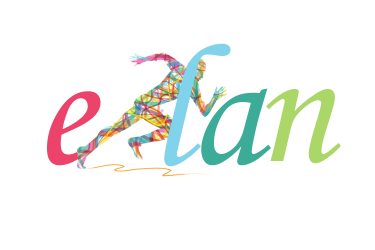It’s certainly not by learning the rules of grammar as you would learn the rules of physics, but rather by….well…reading. Yes, it’s that simple, reading everything and anything you can get your hands on. It would help a great deal if you could find something you are really crazy or obsessed about. 20 years ago, I got obsessed reading the Fountain Head by Ayn Rand, a Russian-born American author and philosopher, for 6 months, day and night, and managed to take my skills from Elementary level to a strong Upper-intermediate within 6 months. It was not just me who thought that, but also the TOEFL folks, otherwise, I would still be stuck in Lebanon now, and I would have never got my Student Visa to Australia. Now, don’t worry, I’m not just writing this article to tell you that, not that it’s not worth writing it about, but I’m not. The reason that I really wanted to write this article is something that I find particularly groundbreaking in terms of improving grammar and reading comprehension in English, and you know what? I’m not just going to write ABOUT it, I’m actually going to write IT. I’ve got you all rattled (confused) haven’t I? Yeah I usually get a kick out of confusing people, forgive me. Alright, so let me tell you what I mean.
Here’s a sample text which, if you read, and understand, your grammar and reading comprehension will both improve dramatically. Read it and then I’ll tell you why.
THE WANT DIALOGUE
 A: What did you want to be when you were a kid?
A: What did you want to be when you were a kid?
B: I wanted to be an engineer, but my parents wanted me to become a doctor.
A: You obviously didn’t want to be a doctor as much as you wanted to be an engineer did you?
B: I never wanted to become a doctor, my parents did, and I just wanted to make them happy.
A: Well, you can want something but it doesn’t mean it’s going to happen.
B: You must want something bad; otherwise, you won’t be able to do it.
A: You must’ve wanted to do something in your life which you couldn’t do though, right?
B: I might’ve wanted to do something but I can’t honestly remember.
A: If there was something you wanted to do, but you couldn’t do, would you do it now?
B: I would, but since I don’t remember, I couldn’t. All I know is that if I want something now, I will do it.
A: What if you can’t do what you want to do now?
B: If I want something, I’ll go get it, no matter how hard it is.
A: Despite your confidence and determination, there is still a chance that you won’t be able to do what you want.
B: When that happens, I won’t want it.
A: I wonder if you can stop wanting something. Once you want something, you can’t stop wanting it, all you can do is come to terms with the fact that you can’t have it.
B: No, I believe that I do have the will power to control my mind and emotions and not want the things that I can’t have.
A: However, you are admitting that there are things that you want, yet you can’t have.
B: I disagree because by the time I realize I want something or not, I’ll have figured out if I could have it or not.
A: So what you are saying is that you only want the things that you can have.
B: True, I’ve got to be able to do something first before wanting it.
A: I doubt that you can have that much control over wanting things.
B: Do you want me to prove it to you?
A: Yes I do.
B: Sorry I don’t want to.
A: Why?
B: Because I can’t.
A: Aha! But you would if you could right?
B: How would I know that I would want to do something just because I could do it?
A: Because when I asked you why, you answered “because”.
B: So?
A: So you established a causal relationship, you don’t want to prove it to me because you can’t. By saying that, you are suggesting that if you could prove it to me, you would want to, but since you can’t, you don’t want to.
B: No, no your logic is flawed, although it is true that I don’t want to prove it to you now because I can’t, it doesn’t mean that, if I was somehow able to, I would want to. You can’t determine what you want just on the basis of ability, you can’t prove that. Even if I were able to prove it to you, I might not want to.
END OF DIALOGUE
Okay. So what’s special about this dialogue besides the fact that I wrote it? It focuses on one word “want”. It uses logic in what it almost seems an absurd and irrational conversation. So I guess my advice for you today is to read the work of the theater of the absurd playwrights like Samuel Beckett, Eugène Ionesco, Jean Genet, Harold Pinter and Edward Albee. Reading works from the theater of the absurd could be far more beneficial and effective than studying grammar off a textbook.
Give it a shot and see how you go. Share your experience with everyone here. What do you think works in grammar learning and reading comprehension improvement?

Leave a Reply